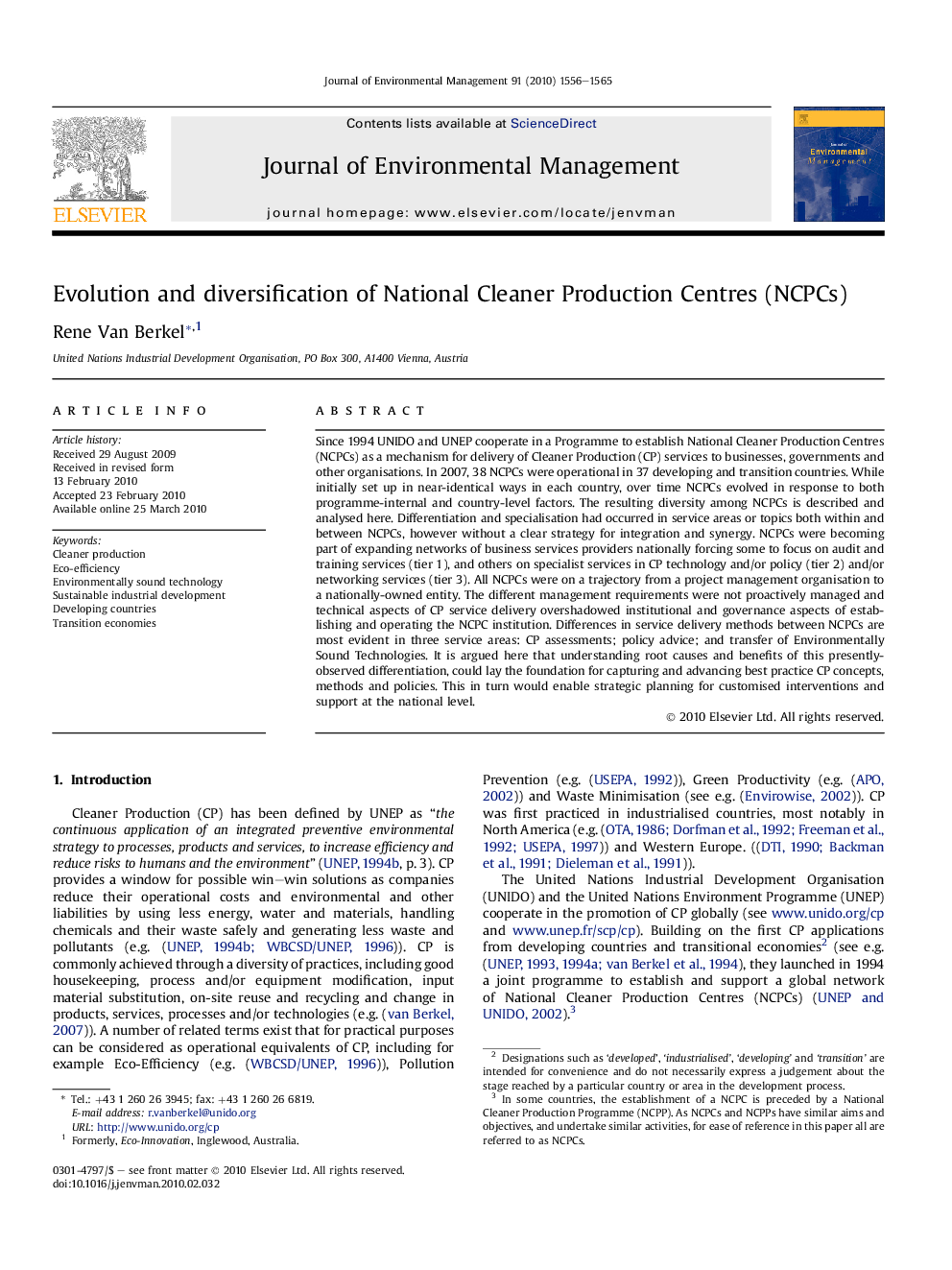| Article ID | Journal | Published Year | Pages | File Type |
|---|---|---|---|---|
| 1057283 | Journal of Environmental Management | 2010 | 10 Pages |
Since 1994 UNIDO and UNEP cooperate in a Programme to establish National Cleaner Production Centres (NCPCs) as a mechanism for delivery of Cleaner Production (CP) services to businesses, governments and other organisations. In 2007, 38 NCPCs were operational in 37 developing and transition countries. While initially set up in near-identical ways in each country, over time NCPCs evolved in response to both programme-internal and country-level factors. The resulting diversity among NCPCs is described and analysed here. Differentiation and specialisation had occurred in service areas or topics both within and between NCPCs, however without a clear strategy for integration and synergy. NCPCs were becoming part of expanding networks of business services providers nationally forcing some to focus on audit and training services (tier 1), and others on specialist services in CP technology and/or policy (tier 2) and/or networking services (tier 3). All NCPCs were on a trajectory from a project management organisation to a nationally-owned entity. The different management requirements were not proactively managed and technical aspects of CP service delivery overshadowed institutional and governance aspects of establishing and operating the NCPC institution. Differences in service delivery methods between NCPCs are most evident in three service areas: CP assessments; policy advice; and transfer of Environmentally Sound Technologies. It is argued here that understanding root causes and benefits of this presently-observed differentiation, could lay the foundation for capturing and advancing best practice CP concepts, methods and policies. This in turn would enable strategic planning for customised interventions and support at the national level.
